Dyson humidifiers incorporate advanced evaporative technology that turns water into vapor. The water you put into your humidifier’s water tank is made to circulate in your home in the form of vapor. With all the minerals and microorganisms present in tap water, you may start to wonder if it’s alright to use it in a humidifier. We’ve already done the research for you and here’s what we found out.
From a safety standpoint, you can use tap water in a Dyson humidifier. However, using tap water instead of distilled or purified water may not be the best option for humidifiers. Prolonged usage of tap water in your humidifier can damage not only the machine but even your health and your home.
Now that you know that tap water is not the best option, you may wonder what is the most suitable water for your Dyson humidifier. Read on to know more about the effects of tap water in humidifiers.
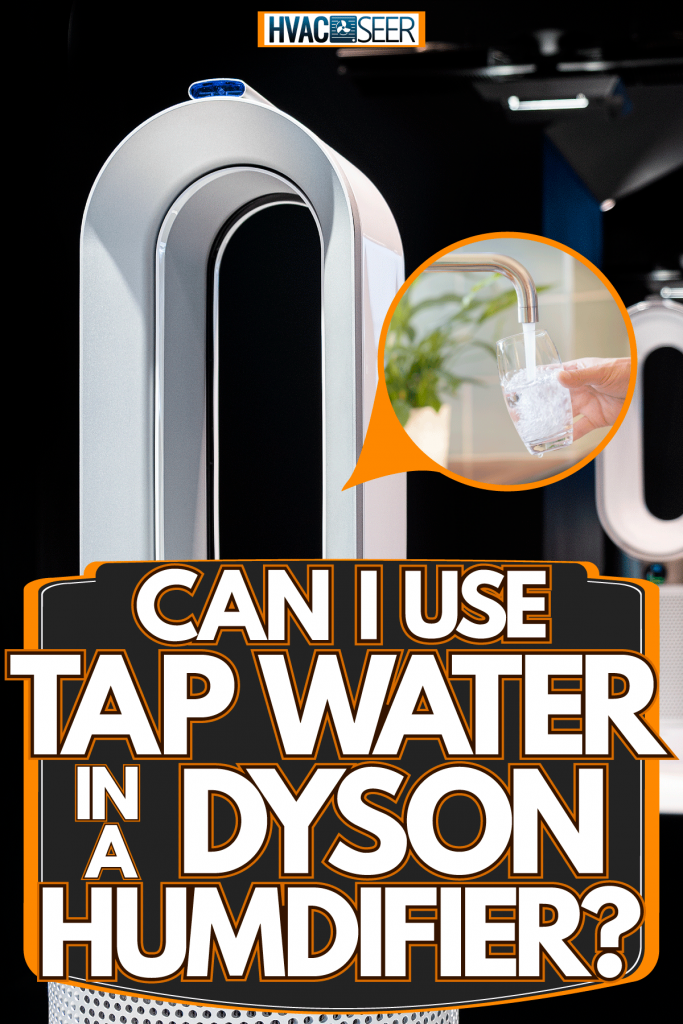
Does a Dyson Humidifier Need Distilled Water?
Distilled water is ideal for use in humidifiers. It has no mineral content preventing mineral buildup in the humidifier. As it is contaminant-free, you don’t risk spreading bacteria into the air. Distilled water also prolongs the humidifier’s life.
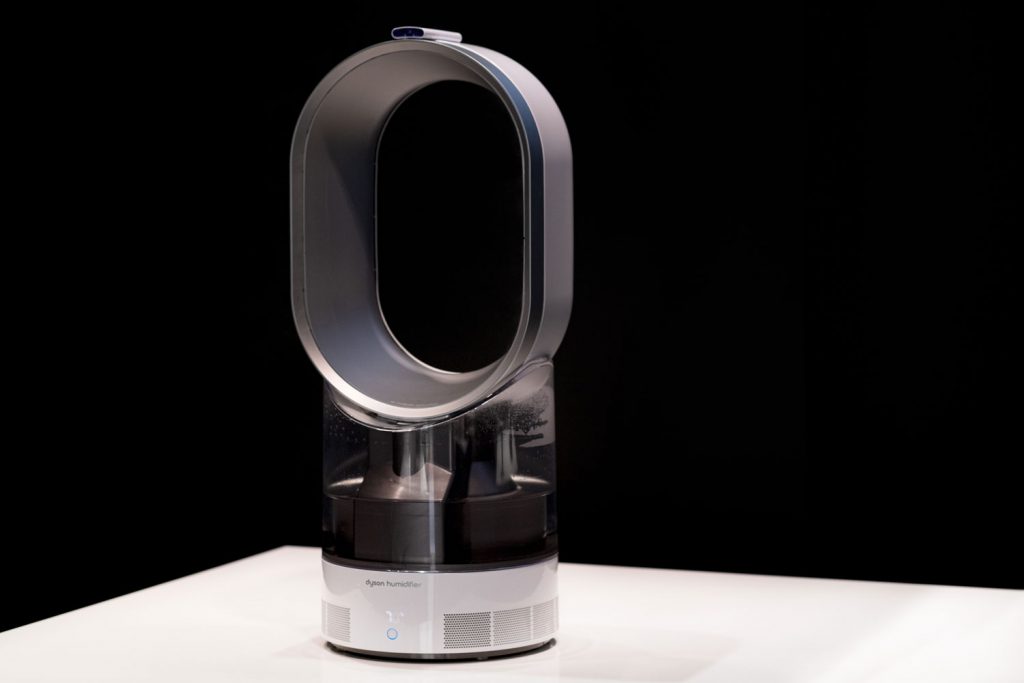
While it is okay to use tap water in your humidifier, a Dyson product expert at bestbuy.com recommends using distilled or purified water instead. Tap water contains different kinds of minerals and even microorganisms. But you don’t have to worry about microorganisms circulating in the air since Dyson humidifiers incorporate a purification process by using UV light. This means you may not have to be using distilled water all the time.
However, materials from tap water can build up and deposit in your water tank. This deposit may become a breeding ground for bacteria. In the long run, this may affect your humidifier’s performance. The filters may become clogged and the UV light may not fully penetrate the water tank. This will lead to bacteria becoming circulated in your home. To avoid this, regularly perform deep clean in your Dyson humidifiers and limit the use of tap water.
Is Purified Water the Same as Distilled Water for Humidifiers?
Purified water and distilled water are both contaminant-free. While distilled water is completely mineral-free, purified water may still have few amounts of mineral left in it. This means that distilled water is still the ideal water for humidifiers. Hence, the use of purified water and tap water should be limited.
Safety Tips For Dyson Humidifier
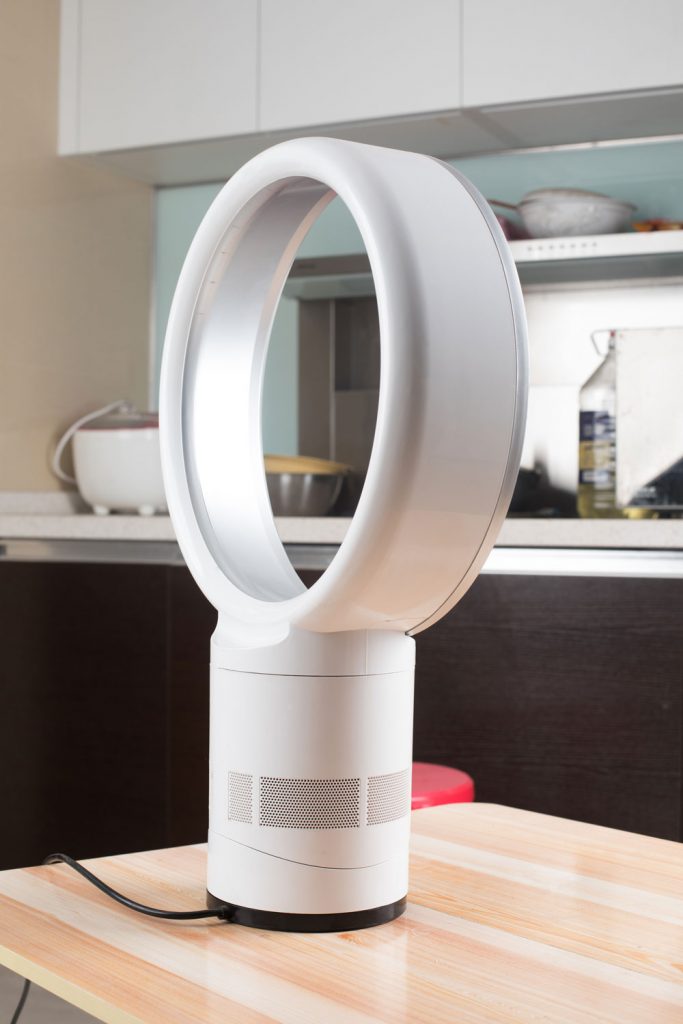
When used correctly, Dyson humidifiers can help improve the quality of the air you breathe at home. It will also keep you from spending money on maintenance and repairs.
- Use only distilled water. Purified water is a good second choice since its mineral content is minimal. If you have to, limit the use of tap water as much as possible to prevent the build-up of minerals.
- Change humidifier water as often as every day or at least once every two days.
- Perform weekly deep clean to prevent the build-up of material, bacteria, and molds.
- Never add salt to your humidifier. This will destroy the metal components of your humidifier’s water tank and will shorten its lifespan.
- Since Dyson humidifiers have a built-in humidistat, it is advisable to let them run constantly.
- Use your humidifier only as described in the Dyson operating manual. When you’re not sure how to troubleshoot something, don’t hesitate to contact Dyson’s customer support.
Is the Dyson Humidifier Worth It?
Dyson humidifiers have high price points. Still, buying one is considered a smart investment for many shoppers. Dyson employs a team of skilled scientists and experienced engineers working together to give their consumers the best experience possible.
For example, you can use the Dyson Linking App to connect your humidifier to your phone. This gives you additional features such as connecting to Siri or Alexa for voice control.
The app also automatically uses the local weather data to adjust the humidifier settings. By doing this, it can maintain the ideal level of 30 to 50 percent humidity. Humidity below 30 percent makes the air thin and dry, thus uncomfortable to breathe. On the other hand, humidity levels beyond 60 percent can provide optimal growing conditions for bacteria and molds.
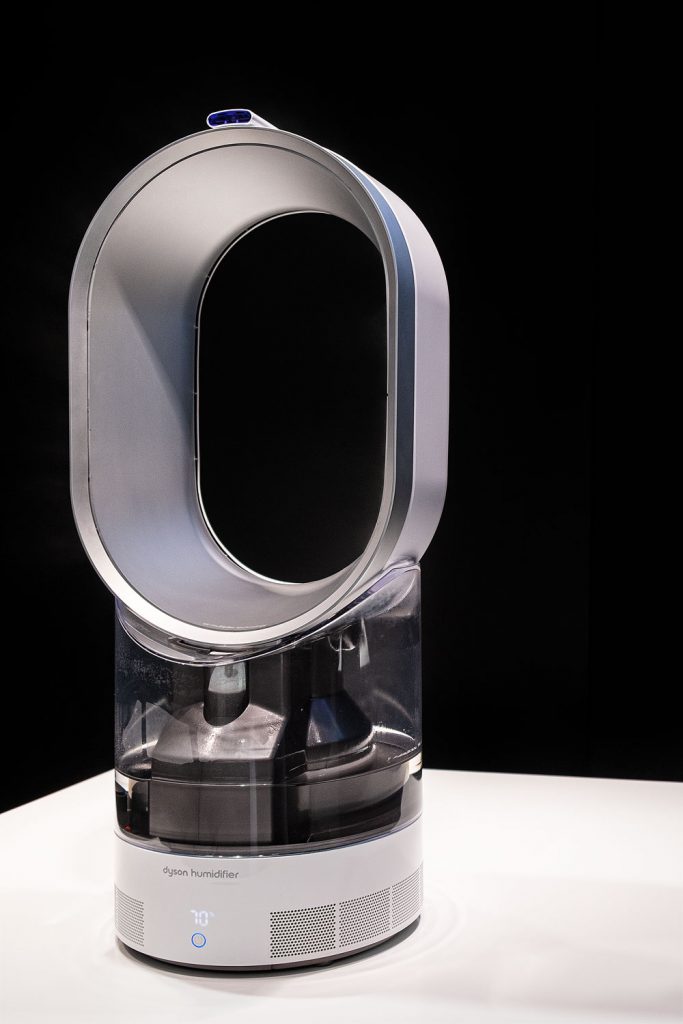
Dyson humidifiers also have incorporated UV light in order to purify the water vapor before putting it in the air. The UV kills at least 99.9 percent of bacteria. Aside from that, Dyson humidifiers can be used as a cooling device in the summer. It can produce a cold breeze to keep your home comfortable.
All in all, one Dyson humidifier can serve as an air quality sensor, air purifier, and cooling fan. Their functionality comes with a sleek and stylish design. They’re easy to set up and easy to use. All Dyson humidifiers also feature a 2-year warranty.
Which Dyson Humidifier is Best?
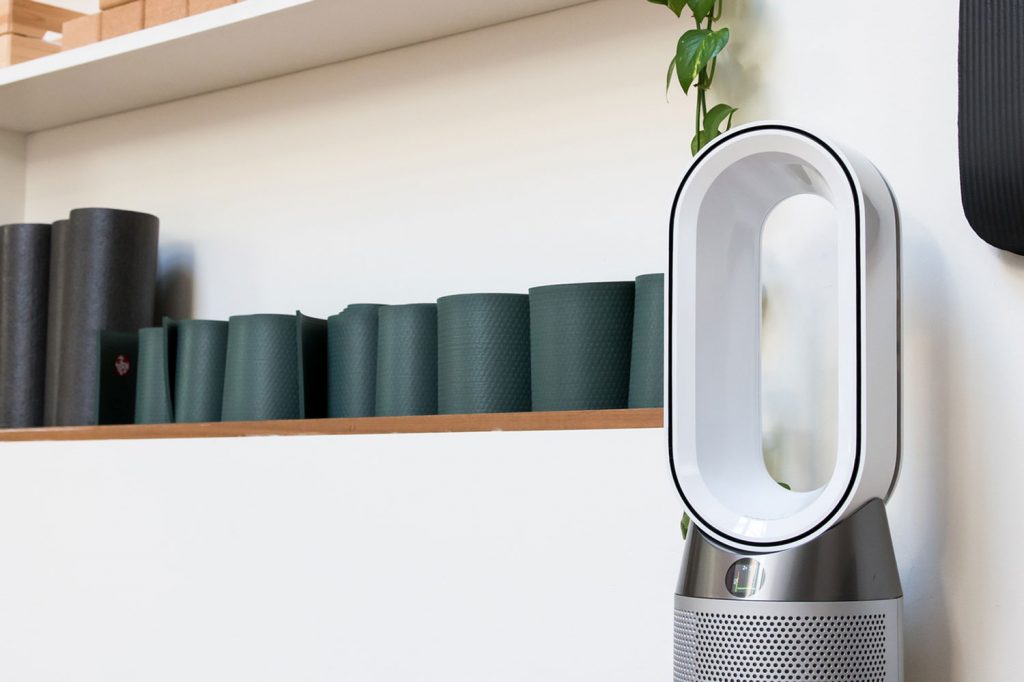
Depending on your personal needs and preferences, you can choose which Dyson humidifier best suits your taste. Here are two of their best models:
PH03—Dyson Purifier Humidfy+Cool
PH03 is one of Dyson’s latest released models of humidifier. It features technology that circulates purified and humidified air throughout the room.
The following technology is incorporated in a PH03 Dyson Purifier Humidifier+Cool
- HEPA Filters: This captures 99.97% of particles that are bigger than 0.3 microns in size. It also has an added layer of carbon that removes odors and gasses.
- Fully sealed HEPA H13: To make sure that the sealed pollutants don’t go back into the air, the whole machine is sealed to HEPA H13 standard.
- Ultraviolet Cleanse Technology: Dyson humidifiers hygienically humidify water by removing 99.9% of bacteria in the water. Every drop of water is exposed to a UV light to ensure purification.
- Integrated Sensors: With this built-in feature, you don’t have to manually monitor the humidity and weather around you. The data will then be displayed on the LCD.
- Dyson Linking App: You can remotely control your Dyson humidifier.
- Auto Mode: With this feature, you don’t have to manually check the humidifier every now and then. You can just set it up then schedule some reminders for deep cleaning, water changing, and filter changing.
PH04—Dyson Purifier Humidify+Cool Formaldehyde
PH04 has the same technologies as PH03. The main difference between the two is PH04’s ability to detect and destroy formaldehyde in the air. Some of the things you use at home such as paints, cosmetics, and furniture contain formaldehyde. Too much formaldehyde build-up can cause respiratory tract infection.
In Closing
Owning a Dyson humidifier has its perks. It keeps you from having dry skin and allergies. Its purification technology keeps bacteria and molds from spreading inside your homes. So long as you limit the use of tap water and regularly deep clean you will continue to enjoy the benefits of your Dyson humidifiers.
